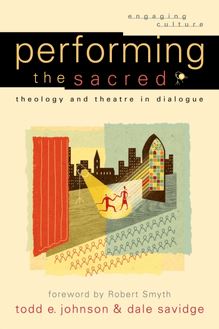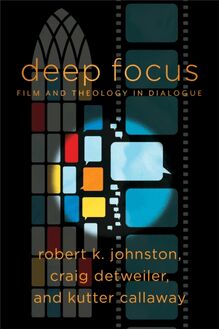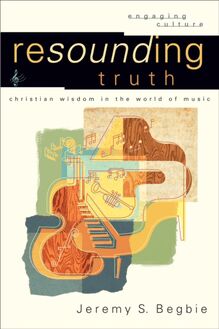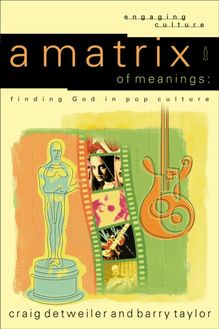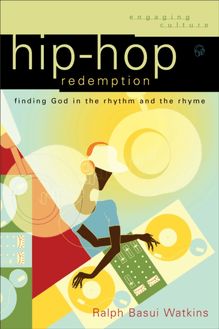-
 Univers
Univers
-
 Ebooks
Ebooks
-
 Livres audio
Livres audio
-
 Presse
Presse
-
 Podcasts
Podcasts
-
 BD
BD
-
 Documents
Documents
-
- Cours
- Révisions
- Ressources pédagogiques
- Sciences de l’éducation
- Manuels scolaires
- Langues
- Travaux de classe
- Annales de BEP
- Etudes supérieures
- Maternelle et primaire
- Fiches de lecture
- Orientation scolaire
- Méthodologie
- Corrigés de devoir
- Annales d’examens et concours
- Annales du bac
- Annales du brevet
- Rapports de stage
La lecture à portée de main
Vous pourrez modifier la taille du texte de cet ouvrage
Découvre YouScribe en t'inscrivant gratuitement
Je m'inscrisNetworked Theology (Engaging Culture) , livre ebook
Découvre YouScribe en t'inscrivant gratuitement
Je m'inscrisEn savoir plus
Vous pourrez modifier la taille du texte de cet ouvrage
En savoir plus

Description
Sujets
Informations
| Publié par | Baker Publishing Group |
| Date de parution | 20 septembre 2016 |
| Nombre de lectures | 1 |
| EAN13 | 9781493404391 |
| Langue | English |
| Poids de l'ouvrage | 1 Mo |
Informations légales : prix de location à la page 0,0662€. Cette information est donnée uniquement à titre indicatif conformément à la législation en vigueur.
Extrait
cover
series page
W ILLIAM A. D YRNESS AND R OBERT K. J OHNS TON , SERIES EDITORS
The Engaging Culture series is designed to help Christians respond with theological discernment to our contemporary culture. Each volume explores particular cultural expressions, seeking to discover God’s presence in the world and to involve readers in sympathetic dialogue and active discipleship. These books encourage neither an uninformed rejection nor an uncritical embrace of culture, but active engagement informed by theological reflection.
title page
copyright page
© 2016 by Heidi A. Campbell and Stephen Garner
Published by Baker Academic
a division of Baker Publishing Group
P.O. Box 6287, Grand Rapids, MI 49516-6287
www.bakeracademic.com
Ebook edition created 2016
All rights reserved. No part of this publication may be reproduced, stored in a retrieval system, or transmitted in any form or by any means—for example, electronic, photocopy, recording—without the prior written permission of the publisher. The only exception is brief quotations in printed reviews.
Library of Congress Cataloging-in-Publication Data is on file at the Library of Congress, Washington, DC.
ISBN 978-1-4934-0439-1
Unless otherwise indicated, Scripture quotations are from the New Revised Standard Version of the Bible, copyright © 1989, by the Division of Christian Education of the National Council of the Churches of Christ in the United States of America. Used by permission. All rights reserved.
Scripture quotations labeled NIV are from the Holy Bible, New International Version®. NIV®. Copyright © 1973, 1978, 1984, 2011 by Biblica, Inc.™ Used by permission of Zondervan. All rights reserved worldwide. www.zondervan.com
dedication
For Kim, Mark, Chris, Laura, and Philip and in memory of Vivian Margaret Campbell, who loved theology!
contents
Cover i
Series Page ii
Title Page iii
Copyright Page iv
Dedication v
Acknowledgments ix
Introduction: When New Media Meets Faith 1
1. Theology of Technology 101: Understanding the Relationship between Theology and Technology 19
2. New Media Theory 101: Understanding New Media and the Network Society 39
3. Networked Religion: Considering How Faith Is Lived in a Network Society 61
4. Merging the Network with Theology: Who Is My Neighbor in Digital Culture? 79
5. Developing a Faith-Based Community Response to New Media 97
6. Engaging Appropriately with Technology and Media 115
Bibliography 149
Notes 161
Index 173
Back Cover 176
acknowledgments
Heidi A. Campbell wishes to thank the Vaughan Park Scholars Scheme in New Zealand and John Fairbrother, who provided me with space in the fall of 2009 where I began to envision this book project and where Stephen and I first began our conversations on theology and technology. Since that time my thinking on theology and new media has been greatly informed and enriched by insightful conversation with a number of theologians and religion and media scholars around the world—namely, Lynne Baab, Tim Bulkley, Michael Delashmutt, John Dyer, Mary Hess, Peter Horsfield, Tim Hutchings, Miranda Klaver, Paul Soukup, Matthew Tan, and Pete Ward. I am also grateful to the University of Durham COFUND Scheme at the Institute for Advanced Study, especially Simon Litchfield, and to CODEC at St John’s College, especially David Wilkinson, who hosted me in fall 2012 as a visiting senior scholar. It was then that initial drafts of many of my chapters were mapped out in the inspiring environments of Bex Lewis’s lounge, East Coast and Cross Country trains as I traversed the UK, and Flat White in Durham, where I pondered over many a cuppa. Very special thanks go out to Andy Byers, Bex Lewis, Pete Phillips, and Byrony Taylor from CODEC, who read and provided useful comments on early drafts of my chapters. I am further blessed by my international friendship and family network—including John Campbell, Nicola Hoggard-Creegan, Heather and Robb Elmatti, Gigi and John Greene, John and Sally Stuart, Helen and David Senior, and Judy Webster—who have supported me through this writing project and provided me with food, feedback, and encouragement along the way. Thanks also to my coauthor, Stephen Garner, for being a committed discussion partner and collaborator; to Kathy DiSanto, my faithful friend and copyeditor; and to Robert Hosack at Baker Publishing for his patience and oversight in this project.
Stephen Garner is thankful for the many conversations about faith and technology over the years leading up to this book project. Some of these conversations came out of the computer science communities I studied and worked in, pricking my interest in situating technology within the context of Christian faith. I am particularly indebted to Tony Smith at the University of Waikato, Hamilton, for early conversations in this area. I am also grateful for the support and encouragement I received from the theology faculty at the University of Auckland in terms of early research funding and the companionship of Elaine Wainwright, Nick Thompson, and Caroline Blyth. More recently, I am indebted to my current employer, Laidlaw College, and to Martin Sutherland and Tim Meadowcroft for their ongoing support as friends and colleagues. I would also like to thank the students I have taught in theology, technology, and media courses for their questions that got right to the heart of networked theology. My work has also been influenced and enriched by many conversations with Australasian theologians and media scholars, including Tim Bulkeley, Steve Taylor, Craig Mitchell, Ann Hardy, Peter Horsfield, Paul Emerson Teusner, and Lynne Baab. Others along the way, such as Jason Clark, Bex Lewis, Mary Hess, and Andrew Bradstock, have added their voices to the conversations. To Heidi Campbell, my coauthor, my deep thanks for our many conversations and collaborations on media and theology over the years and for your hard work in steering this project. I am blessed by your scholarship and friendship. To my wife, Kim, and children, Mark, Chris, Laura, and Philip, thank you for all your love and for the time given to this project. Finally, thanks to Kathy DiSanto for her copyediting and to Robert Hosack at Baker Publishing for his ongoing support for this project.
introduction
When New Media Meets Faith
We live in a world where our digital technologies are increasingly intersecting with our spiritual lives. This is not only changing personal presentations of faith—as blogs, podcasts, and social media become important public platforms for individuals to discuss their beliefs—but also the way we do church. The Barna Research Group reported significant increases in church leaders’ use of the internet (from 78 percent in 2000 to 97 percent in 2014), especially for information gathering, keeping up existing relationships, and making new friends. It also noted an increase in pastors’ perception of the internet as useful for facilitating spiritual or religious experiences (from 15 percent to 39 percent). In 2014 nine out of ten pastors believed that it is “theologically acceptable for a church to provide faith assistance or religious experiences to people through the Internet.” Overall, many churches in America viewed the internet as having moved from being a luxury to being an essential tool for ministry. 1
The Church of England announced plans in early 2015 to equip all of its sixteen thousand churches with Wi-Fi internet access to draw more visitors to these sites and encourage churches to enhance and develop outreach programs to serve the practical and spiritual needs of a digital generation. 2 As the internet increasingly becomes a place where people meet and live a large portion of their social lives, the call has been sounded ever louder to meet them there with the gospel of Christ. In 2014 the Billy Graham Evangelistic Association recorded over six million online conversions connected to their website and resources, in contrast to only fifteen thousand converts made through face-to-face outreach. 3 Similarly, Global Media Outreach—a ministry that leverages the internet, mobile devices, and social media—claimed that more than thirty-four million people made decisions to follow Christ through its digital evangelization work. 4 Technological innovations give rise to experimentation with new forms of creative outreach and religious education and discipleship resources. For instance, Christian technology developers and workers with the American Bible Society have pondered how Microsoft’s new holographic technology and augmented reality goggles such as Oculus Rift might be used to superimpose digital text on interactive images of Bible passages, opening the way for a holographic Bible and study materials. 5 Other trends in digital ministry include e-giving, which provides members with online and mobile giving options though touch-screen kiosks and mobile apps, and virtual world churches, which use virtual-reality technology to create digital worship experiences in online environments for avatar-based worshipers. 6
As digital media continue to find a way into church practice and our everyday lives, we are increasingly faced with the challenge of how to evaluate and theologically reflect on these changes. We, the authors, believe that theological discourse must be taken seriously to understand how new media shape our everyday lives and the ethical impact of our technological engagement on our perception of what it means to be human. Such reflection requires moving beyond the overly simplistic framing of technology as either good or evil. Some current work on the church and the internet has focused on how digital media can or should be used in worship or ministry contexts, presenting digital media as tools simply to be embraced for the cause of Christ. Other work has sought to offer a general Christian appraisal of the nature and impact of technologies on the church and society, but it has started with the assumption t
-
 Univers
Univers
-
 Ebooks
Ebooks
-
 Livres audio
Livres audio
-
 Presse
Presse
-
 Podcasts
Podcasts
-
 BD
BD
-
 Documents
Documents
-
Jeunesse
-
Littérature
-
Ressources professionnelles
-
Santé et bien-être
-
Savoirs
-
Education
-
Loisirs et hobbies
-
Art, musique et cinéma
-
Actualité et débat de société
-
Jeunesse
-
Littérature
-
Ressources professionnelles
-
Santé et bien-être
-
Savoirs
-
Education
-
Loisirs et hobbies
-
Art, musique et cinéma
-
Actualité et débat de société
-
Actualités
-
Lifestyle
-
Presse jeunesse
-
Presse professionnelle
-
Pratique
-
Presse sportive
-
Presse internationale
-
Culture & Médias
-
Action et Aventures
-
Science-fiction et Fantasy
-
Société
-
Jeunesse
-
Littérature
-
Ressources professionnelles
-
Santé et bien-être
-
Savoirs
-
Education
-
Loisirs et hobbies
-
Art, musique et cinéma
-
Actualité et débat de société
- Cours
- Révisions
- Ressources pédagogiques
- Sciences de l’éducation
- Manuels scolaires
- Langues
- Travaux de classe
- Annales de BEP
- Etudes supérieures
- Maternelle et primaire
- Fiches de lecture
- Orientation scolaire
- Méthodologie
- Corrigés de devoir
- Annales d’examens et concours
- Annales du bac
- Annales du brevet
- Rapports de stage

